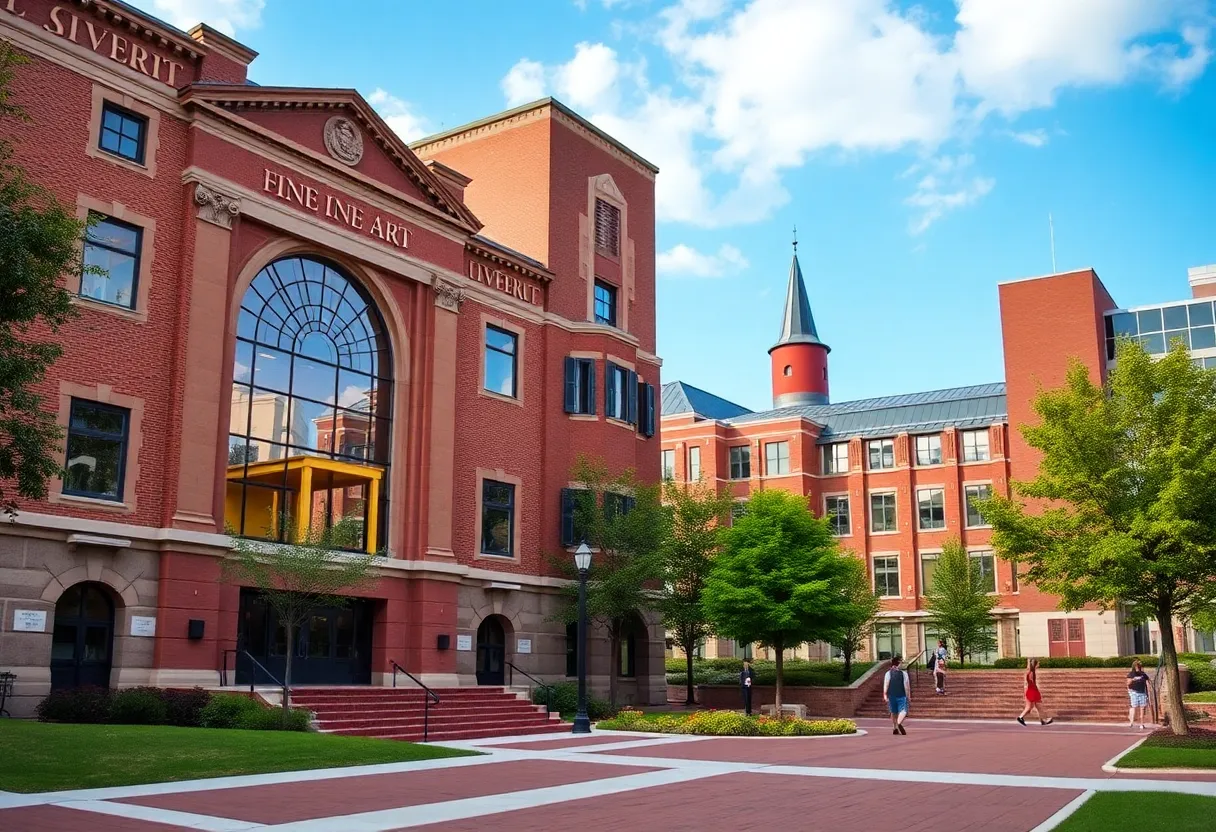News Summary
Jacksonville University has announced significant cuts to its fine arts programs due to rising tuition concerns and job market uncertainties. Nearly 40 faculty members and around 20 students majoring in impacted disciplines are affected. The decision is part of a strategic shift towards aligning academic offerings with in-demand fields like nursing and engineering. Students have expressed considerable frustration over the cuts, and while the university aims to maintain 37 majors and 15 graduate programs, the changes reflect broader trends in higher education.
Jacksonville – Jacksonville University (JU) announced significant cuts to its fine arts programs amid rising tuition concerns and job market uncertainties, affecting nearly 40 faculty members and approximately 20 students majoring in the impacted disciplines. The university’s decision comes as part of a strategic shift to focus on degrees that align more closely with market demand, such as nursing, engineering, and computer science.
JU President Tim Cost explained that the institution must prioritize preparing future leaders by evaluating resources based on actual student interest and the realities of the job market. These program cuts are part of broader restructuring efforts at JU, which includes a transition into a new educational framework called the Linda Berry Stein College of Arts and Sciences combining various disciplines from previous fine arts and humanities colleges.
As a response to financial pressures, JU plans to reduce controllable expenses by 10 percent across all operations by Fall 2025. With an enrollment of approximately 4,200 students, the university is keen to redirect focus on offerings that are deemed most in-demand, ensuring the viability and attractiveness of its programs.
Students voiced considerable frustration regarding the elimination of their programs. Those directly affected by the cuts, including music tech major Savannah Ivey, expressed feelings of distress, disappointment, confusion, and anger. In addition, reports surfaced that students were barred from attending meetings where crucial discussions about the program cuts took place, further fueling discontent among the student body.
The fine arts programs that are being discontinued include music, theater, philosophy, and certain business degrees, fundamentally changing the landscape of academic offerings at JU. Students impacted by these changes will receive a full-tuition scholarship for the duration of their studies, allowing them to continue their education without financial burdens related to the transition.
Despite these cuts, JU plans to maintain a total of 37 majors and minors alongside 15 graduate programs in critical fields such as mental health counseling and marine science. This ongoing shift is reflective of a larger trend within higher education, where institutions are reevaluating their curricula to better meet the changing demands of the workforce.
These cuts and shifts at JU unfold against the backdrop of rising tuition costs and increasing skepticism about the value of a college degree. For the 2024-2025 academic year, the average annual tuition for in-state public universities is expected to exceed $11,600, marking an almost 3 percent increase over the previous year. A survey conducted by the Pew Research Center in May 2024 revealed that only 25 percent of adults believe a college degree is critical for obtaining a high-paying job.
Recent data indicates that the unemployment rate for new graduates aged 22 to 27 was reported at 5.8 percent in March 2025, more than double the unemployment rate for all college graduates. However, despite these troubling figures, research shows that median earnings for recent graduates stand at $60,000—$20,000 more than those holding just a high school diploma. Over a lifetime, individuals with a bachelor’s degree can expect to earn between $630,000 and $900,000 more than high school graduates, while those with graduate degrees may see their lifetime earnings increase by an estimated $1.1 million to $1.5 million.
In summary, Jacksonville University’s decision to cut its fine arts programs reflects broader economic realities and changing perceptions regarding the value of a college education. As institutions across the country reassess their academic offerings in light of workforce needs, JU’s actions manifest the pressing necessity for universities to align their programs with student demand and job market opportunities.
Deeper Dive: News & Info About This Topic
HERE Resources
Santa Ono’s Presidential Bid for University of Florida Rejected
Three Finalists Announced for DIA CEO Position in Jacksonville
Terror Attack Rocks Boulder, Colorado, Leaving 12 Injured
Jacksonville Launches ‘The Pop-Out’ Concert Series
FSU Student Charged with Murder After Mass Shooting
Jacksonville Celebrates Pride Month with Major Events and New LGBTQ+ Advisory Board
Man Shot in Foot During Jacksonville Road Rage Incident
Aces Around the Bases Disc Golf Event Returns to Jacksonville
Jacksonville University Baseball Season Concludes with FGCU Defeat
Visa Changes for Chinese Students: Key Insights
Additional Resources
- WOKV: Highest Paying Jobs in Jacksonville
- News4Jax: JU Students Frustration over Program Cuts
- Jacksonville.com: Bill Could Cap Four-Year Degrees
- Wikipedia: Education in the United States
- Forbes: Best Online Bachelor’s in Emergency Management
Author: STAFF HERE JACKSONVILLE WRITER
The JACKSONVILLE STAFF WRITER represents the experienced team at HEREJacksonville.com, your go-to source for actionable local news and information in Jacksonville, Duval County, and beyond. Specializing in "news you can use," we cover essential topics like product reviews for personal and business needs, local business directories, politics, real estate trends, neighborhood insights, and state news affecting the area—with deep expertise drawn from years of dedicated reporting and strong community input, including local press releases and business updates. We deliver top reporting on high-value events such as the Jacksonville Jazz Festival, Riverside Arts Market, and World of Nations Celebration. Our coverage extends to key organizations like the Jacksonville Chamber of Commerce and JAXUSA Partnership, plus leading businesses in logistics, healthcare, and entertainment that power the local economy such as CSX Corporation, Baptist Health, and VyStar Credit Union. As part of the broader HERE network, including HEREOrlando.com, HEREStPetersburg.com, HERETallahassee.com, and HERETampa.com, we provide comprehensive, credible insights into Florida's dynamic landscape.






